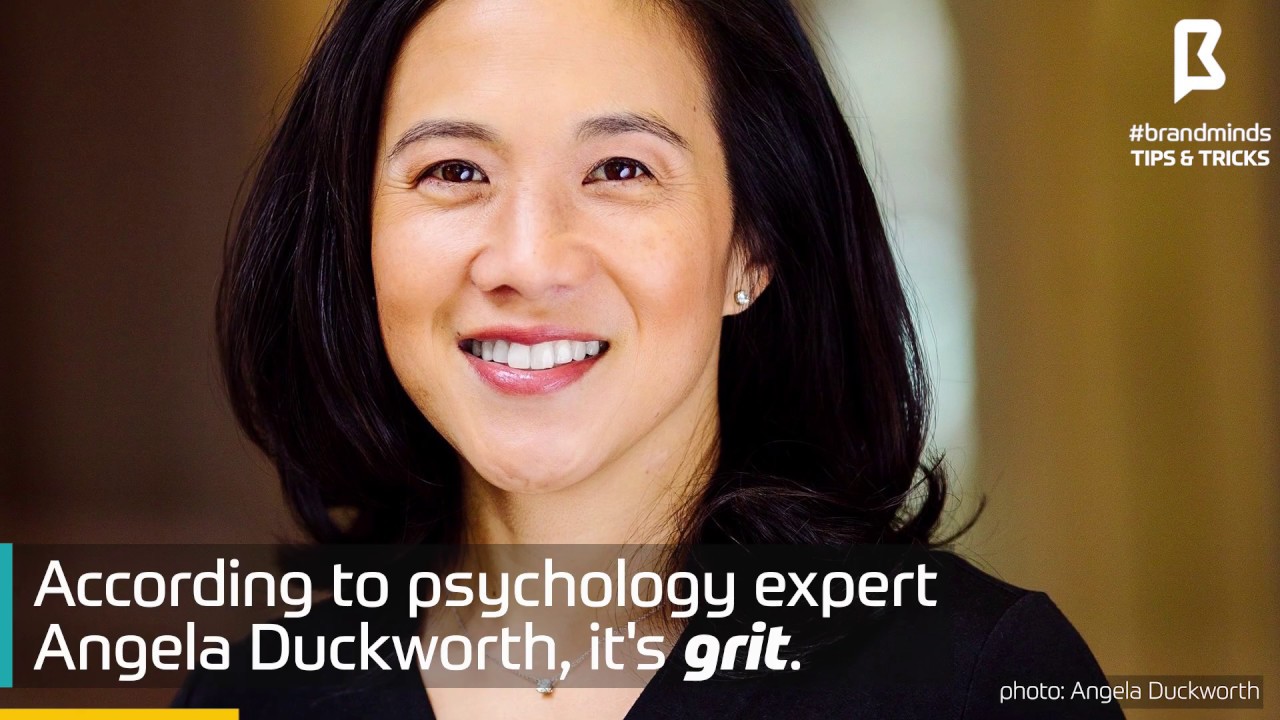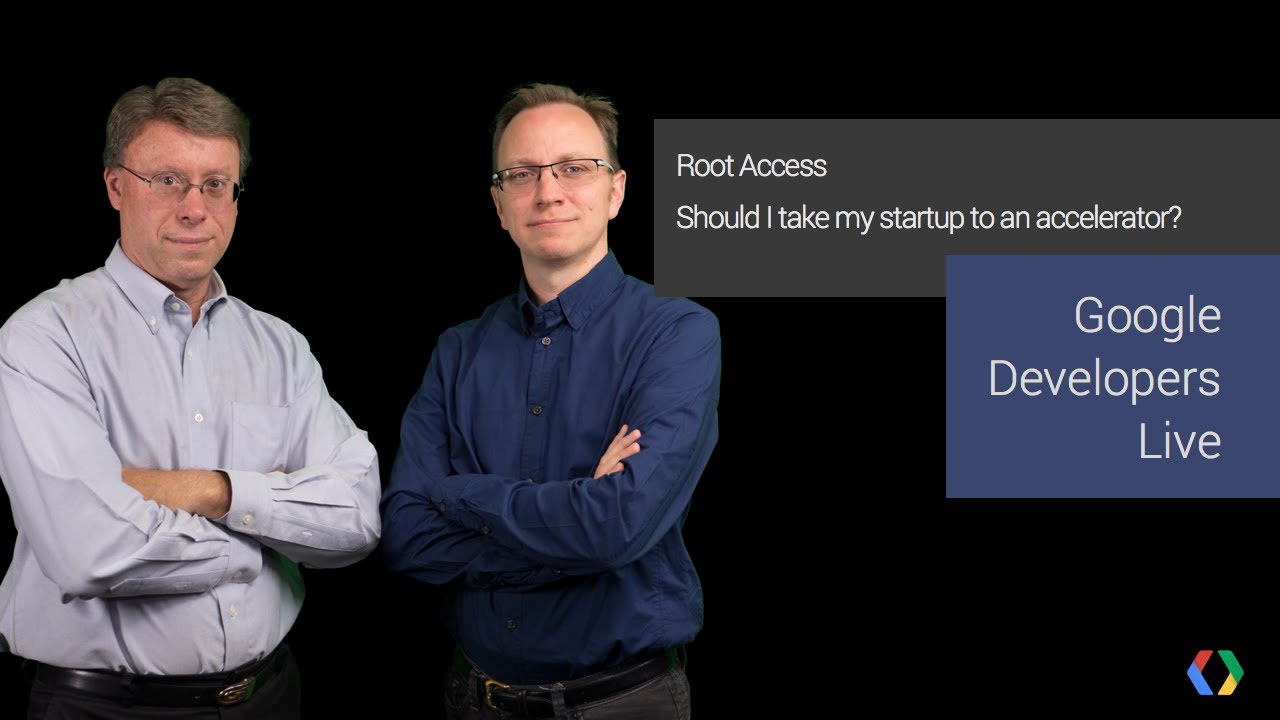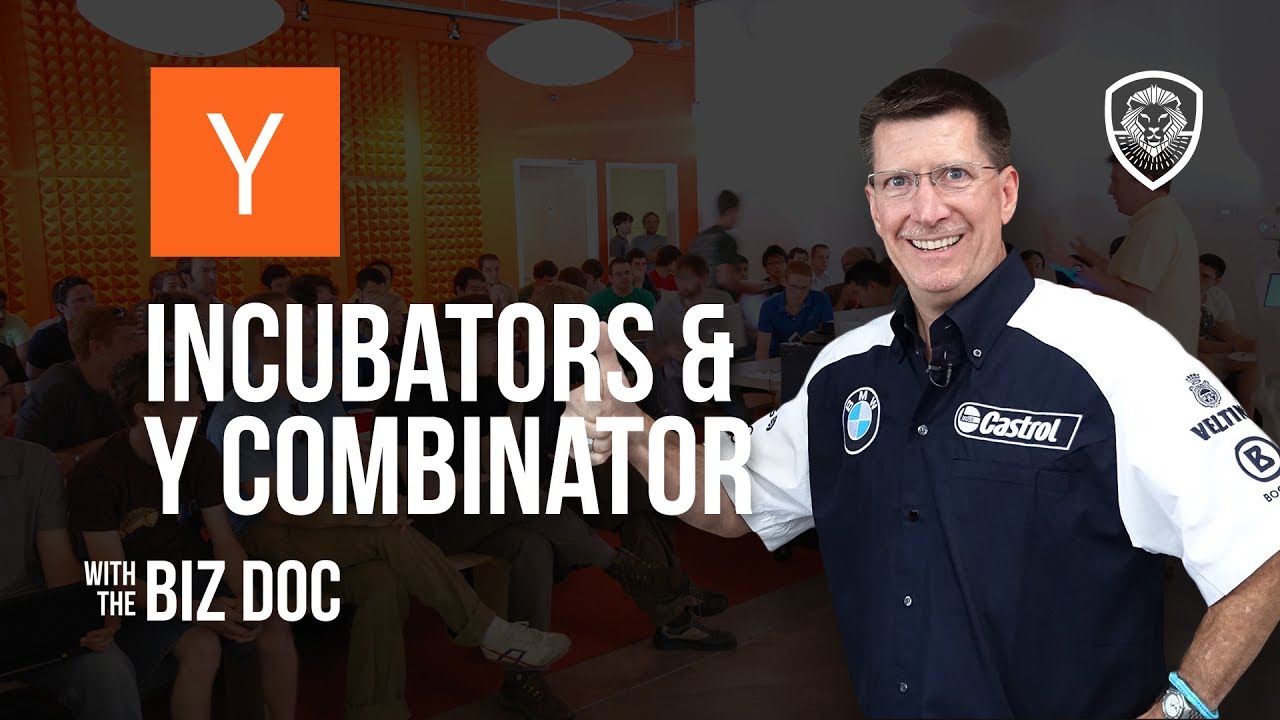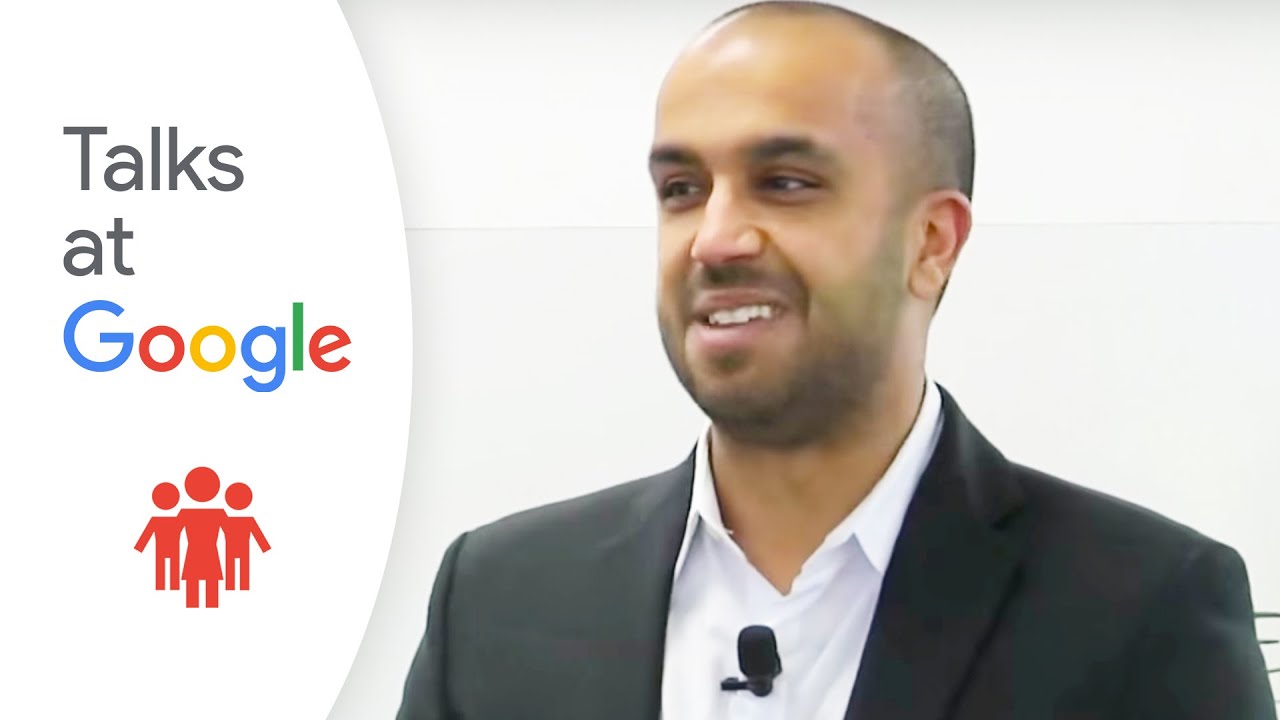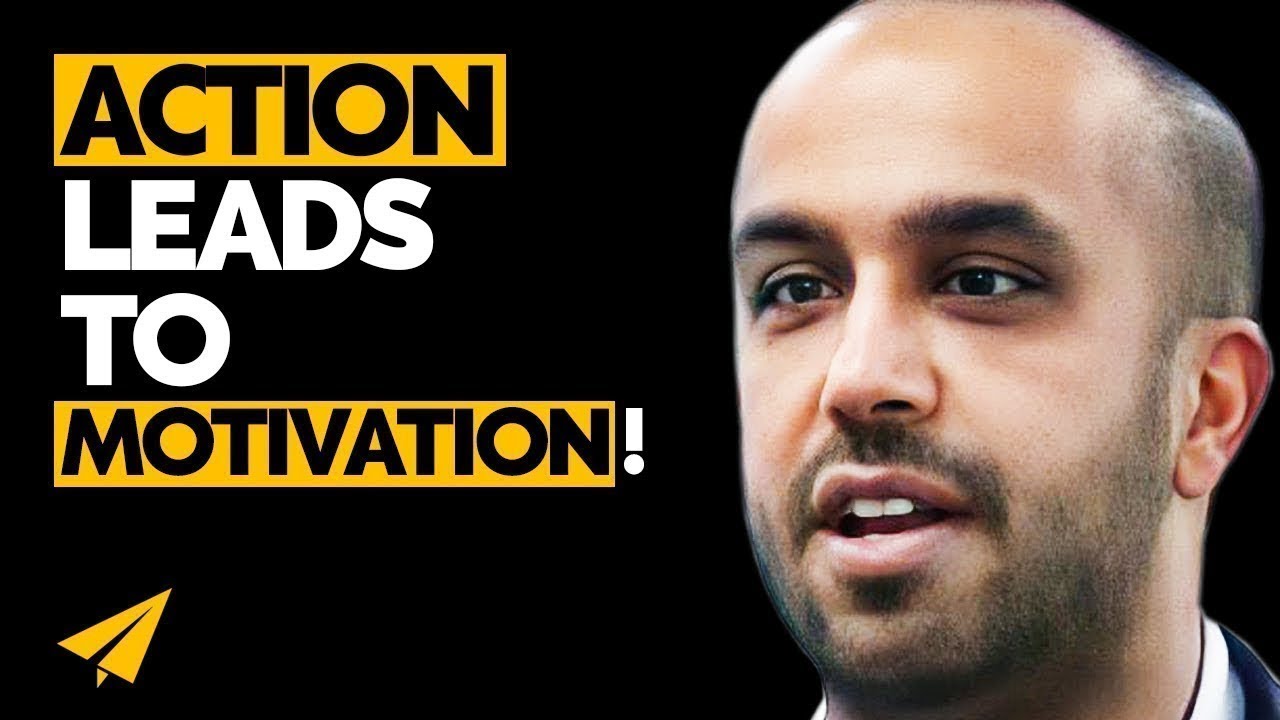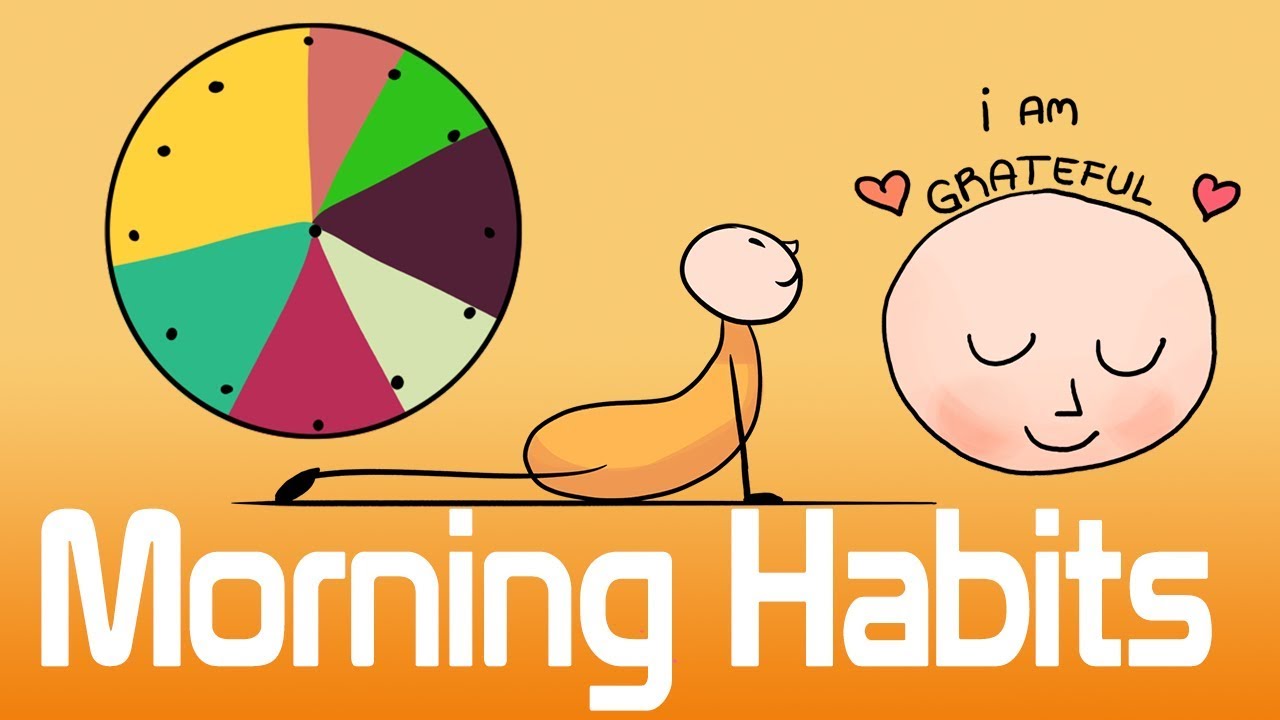BRAND MINDS starts on Friday. Upgrade your mindset for success!
BRAND MINDS LIVE 2020 has launched its live streaming and networking platform. If you haven’t bought a ticket yet, now it’s time to upgrade your mindset for success!
The event starts on Friday, September 25th and ends on Saturday, September 26th. Business-class and First-class ticket participants will join us on Sunday, September 27th for Marketing Masterclass with Martin Lindstrom.
4 ways participants are invited to take advantage of the BRAND MINDS LIVE Streaming platform for business and personal growth
1. NETWORKING – More people to meet, more opportunities for success
Networking is possibly one of the most important soft skills that professionals and entrepreneurs need to acquire and develop. Successful businessman Robert Kiyosaki said this:
The richest people in the world look for and build networks, everyone else looks for work.
The event participants are professionals working in various industries and verticals in 50 countries. BRAND MINDS helps them achieve their goals by providing them with extended networking opportunities inside the live stream platform.
The participants are invited to find connections searching by name, country, company and interests and connect by messaging. At an in-person event, one could only network during half-hour breaks or over lunch, with a limited number of people.
At BRAND MINDS LIVE participants are offered the opportunity to network with a larger number of people in the days leading to and during the event.
2. SCHEDULE VIDEO MEETINGS to establish trust
Apart from messaging, participants are provided with another way of networking, via video.
Event participants can schedule video meetings and thus take their networking strategy to the next level. Seeing the other person is a great way to connect with each other and establish trust.
3. CHECK THE ACTIVATIONS of BRAND MINDS LIVE Partners
Our event is supported by Visa, UniCredit Bank and UniCredit Leasing, BMW, Coca-Cola, TikTok, Nespresso, CEZ Romania, Regina Maria, Lidl, ProTV, KissFM, Carturesti, Bucharest Business Institute, One United, Fratelli, Simion Baciu, Mavericks, Curtea Veche, Editura Trei, Publica, Social Bee, Underline and White Image.
Participants are invited to visit our partners’ rooms in the live streaming platform. Some of our partners are running contests with amazingly valuable prizes. Others have prepared great offers created specifically for BRAND MINDS participants.
4. GROW YOUR KNOWLEDGE – Keep reading, keep learning
World-changers keep learning. Carturesti, one of the largest bookstore chains in Romania, together with the event’s main publishing partners, Publica, Curtea Veche and Trei have prepared an exquisite selection of books dedicated to the BRAND MINDS community of highly-skilled professionals and entrepreneurs.
Event participants are invited to find their favourite books on business and personal growth in Carturesti Book shop, where they can also purchase them.
BRAND MINDS LIVE starts on Friday. Get your tickets!
Does success equal happiness?
Success is not the key to happiness. Happiness is the key to success. If you love what you are doing, you will be successful.
Albert Schweitzer (Nobel Peace Prize Winner)
Throughout my coaching career, I noticed my clients’ objectives were more often related to success or happiness.
You could say it’s normal: we all want success and happiness.
What if you had to choose between these two?
You might say everyone would choose happiness and that’s expected.
Well, I met some people who said success was what made them happy.
We usually desire what we don’t have and we acknowledge the real value of something or someone only after we lose it, even if we believed it was meaningless beforehand. Even if people are aware of this, it’s still very hard to change this way of thinking.

One of my client’s objective was to become popular by being successful. Does popularity equal success?
What does popularity actually mean?
To a teenager, it might mean hundreds of likes on social media.
To a corporate employee, it might be great feedback from their boss and peers, and popularity among colleagues.
To a freelancer, this might mean receiving great recommendations from clients and getting new requests for their services quite often.
To a manager, it might mean his team looking up to them and being proud to be a part of them.
To a mother, it might mean that her advice is priceless to other moms and she is often sought for any type of information. And the list may continue.
In conclusion, popularity means different things to each and every one of us. Popularity can come together with success most of the times, yet maintaining popularity is harder than having success. On the other hand, you can be happy without being popular.

What is success?
Is it when you feel accomplished in your professional life? Is it when you can buy whatever you want without thinking about how this will affect your financial situation? Is it when you can take as many vacations as you want?
When you achieved what you aimed for, can you consider yourself successful? Is it enough? Or you start searching, working, fighting for your next success? So, is success something that passes right after you receive credit for your work? How can you keep the period of success longer?
Here’s how John Wooden, the coach who recruited and shaped the career of the famous basketball player Kareem Abdul-Jabbar defined success:
Success is peace of mind, which is a direct result of self-satisfaction in knowing you made the effort to do your best to become the best that you are capable of becoming.
You can be successful early in life. At school, you get good grades. In the first year at your first job, you are elected Employee of the year. Or as a manager when your recommendations are considered the best ones, etc.

Does being successful at work mean that you are also successful at home?
Why don’t we use the expression “successful at home”?
Why is it that we can be successful at work and at home, we can only be happy? What does it mean to be successful at home: to be the desired wife, a great cook, a caring mother that children brag about at school, a reliable sister, friend or daughter?
Success is not final; failure is not fatal: It is the courage to continue that counts.
Winston S. Churchill
Any idea on how to measure success?
Is it measured in units, tens, thousands? Grades? Frequency?
Who knows?
For someone getting a tap on the shoulder can be a great success. For someone else only winning an important prize in their area of expertise is considered a success.
What about happiness?
Sometimes we are afraid to say we are happy, just not to jinx it.
Have you ever felt there could be a higher level of happiness and you never know if you are happy enough now, or you could be happier?
Much like the universe, there are known parts of happiness – moments you remember you were happy and they basically become your points of reference when talking about happiness – and unknown future moments that can have higher intensity or frequency.

How would you answer to How happy are you?
Not at all, somewhat, very, so very…
Or are you closer to expressions like I’ve never been so down, I am so, so, I could be better, I never felt so happy, This is the best moment of my life that I will never forget, etc?
I often ask my clients How much happiness do you want?
A bunch? A dozen moments of happiness? An ocean (are you able to handle it)? What does happiness mean? A sunny day in winter, your kid’s smile in the morning, a happy husband, a great meal you cooked for the first time and it came out great, having a beer with a friend, having no worries… You can continue the list.
I think both success and happiness mean different things for each of us and what that makes us successful or happy will not do the same for others.
That’s why there are so many question marks in this article. It’s up to you to find the right answer and the right path to happiness and success.
Join the Conversation
We’d love to hear what you have to say.
Get in touch with us on our LinkedIn Group, Facebook Group or Twitter.
Why a Pursuit for Personal Achievement Offers us our Greatest Successes
We all want to be successful. But how do you define success?
In this article, Caroline shares her own pursuit for personal achievement and success, what being successful meant to her in the past and what success means to her now.
The Fake Message of Success
My life was a catastrophe.
My dreams of future success and happiness were over.
I had failed.
At age 24 I had not gained the one for my university degree, that I had so desperately worked for. I had been given endless messages that anything less than this would ruin my chances of succeeding in training as a psychiatrist and being admitted into a prestigious psychological society.
What did my life mean now?
What could I achieve other than anything mediocre?
The idea was terrifying and for a time I was submerged in fear, confusion, sadness and self-reproach for not being good enough.
This did not last for long. My strong self-belief, deep sense of what was meaningful and my determination to achieve turned this around for me.
No-one was going to tell me that I wasn’t good enough. No one and nothing was going to stand in my way of living the life I had chosen for myself. In fact, throughout my secondary school years, the teachers had told me that I would never go to University.

What is success anyway?
Our concept of success relates to the experiences which have been imposed on us from birth. That first smile, first steps, first word, ability to make friends, to be popular, get good grades, have the perfect partner, gain our dream job and it goes on throughout our personal and professional lives.
Success can be defined in several ways. Generally viewed as an accomplishment of wealth, respect, fame or the achievement of a desired / positive outcome.
Our concepts of success are strongly influenced by our society, culture, education system and our parents, as well as our own aspirations, which are deeply based on all of the pre-mentioned factors.
When asked the question Do you think you are a success? or Is he/she a success? our immediate reaction is often to assess this in terms of a person’s material wealth, family status, partner relationship, job/career progression or the level of a person’s influence, popularity or power. This is not so surprising, particularly for someone we do not know because we have little else to go on.
The Success Mindset that Drags you Down
Success is often based on comparing ourselves to others, so we have to be honest here.
Many of us receive a deep sense of joy and satisfaction in believing that we have attained sought after goals, especially over that of others. After all, we are socialised and accustomed to this.
This creates a satisfying sense that some people have done better or are actually better than others.
This also expresses messages that others are abler, have more possibilities, are more valued, more respected, possess more power and are much happier.
This perspective is not only skewed, limited and hard to break away from, it also leads to a mindset which can be detrimental and unproductive to our mental wellbeing and life satisfaction.
Personal Achievement: The Success Mindset that makes you Mentally Healthier
People with a mindset of “success”, based on their own personal achievements possess the ability to positively influence their life perspective.
Their view of themselves and life experience does not involve comparison and is not determined by the expectations and accomplishments of others.
Their sense of self is formed from what they have personally faced and overcome. This also enables them to set realistic and achievable goals, decrease the demands placed upon themselves and make things less stressful.
In this way, they are focused on a perspective which gives personal meaning and self-worth.
When achievements are based on one’s own terms, which are judged and valued by ourselves, we reach greater fulfilment and create happier and mentally healthier lives.
Making Yourself the Dream and the Dreamer
We are all achieving every day with personal achievements being made from hour to hour, day to day, month to month and year to year. Facing, overcoming, resolving and achieving personal aspirations represent the defining moments of who we are.
We witness this in many different ways:
![]() Continually confronting our fears and life challenges.
Continually confronting our fears and life challenges.
![]() For someone who is severely depressed, “success” can be defined in terms of their personal achievements of being able to get out of bed, wash, get dressed, make something to eat or go out.
For someone who is severely depressed, “success” can be defined in terms of their personal achievements of being able to get out of bed, wash, get dressed, make something to eat or go out.
![]() Surviving or leaving an unhappy or abusive situation or relationship.
Surviving or leaving an unhappy or abusive situation or relationship.
![]() Caring for loved ones.
Caring for loved ones.
![]() Regaining something that we had once lost.
Regaining something that we had once lost.
![]() The commitment and responsibility of parenthood.
The commitment and responsibility of parenthood.
![]() Being the first to achieve an unattained feat.
Being the first to achieve an unattained feat.
![]() Accomplishing our personal best.
Accomplishing our personal best.
![]() Learning a new skill.
Learning a new skill.
![]() Gain greater insight and knowledge.
Gain greater insight and knowledge.
![]() Completing a set task, no matter how small or how big.
Completing a set task, no matter how small or how big.
All of these examples reveal just a tiny fraction of our continual personal achievements.
Whenever I came up against an obstacle, I found a way around and my focus was clear. When things seem to block your way see this as an opportunity to explore the wider possibilities.
I didn’t become a psychiatrist and this led me to follow a more fulfilling path in becoming an Existential Psychotherapist. This perfectly suited my personal beliefs and way of life.

Caroline-Ribeiro Nelson
Creating our own Success
I don’t care if people view me as a success or not. This is not what is important or meaningful.
My life has been a continuous stream of personal achievements. I have overcome severe depression, I’ve faced prejudice, discrimination, hatred, jealousy with reserve and dignity.
I am honoured to fulfil a fantastic career in the service of supporting others.
I have learnt a new language, lived in a foreign country.
I learnt to love myself and am loved by others.
I continually strive to be respectful, kind and caring to family, friends and strangers.
I maintain an open mind and am constantly growing; my personal feats are countless.
Ten Ways to Cultivate a Great Personal Achievement Mindset
- Stop wasting time comparing yourself to others’ achievements. Invest in your strength and resources for attaining your own meaningful goals.
- Clarify the expectations that you have for yourself and those placed by others. Decide which expectations reflect your own personal needs and aspirations. Plan realistic steps in achieving these (Consider working with a coach or counsellor, who could support you with this).
- Be the architect of your own life. Do not let others define who you are and what you can achieve. You may face setbacks, obstacles and people who try to pull you down or hold you back. Staying focused and persevering enables you to overcome your hardest challenges and achieve your greatest aspirations.
- Perceive things as challenges rather than problems. If your focus is one of finding a way forward or attaining a goal, then you positively draw on all of your resources, in order to get you to where you want to be.
- Cultivate your self-belief and inner confidence. Utilise the power of self-talk: Continually talk to yourself in positive ways, in order to reinforce your self-worth and what you want to achieve.
- Shut out the negative messages and people who hold you back or drag you down.
- Engage in what you are passionate about. To believe and feel deeply about something, which brings meaning and a sense of worthwhile engagement is one of your greatest motivators. This drives you, brings enjoyment and enables you to perform at your best.
- Regularly take a moment to express gratitude for all of the things which you possess, do and get you through life.
- Acknowledge and appreciate every accomplishment you make, no matter how small. It’s the small things that can make a big difference. These are the steps which move you forward and build you up.
- Regularly take time to reflect and value on where you were in the past and where you are now.
Join the Conversation
We’d love to hear what you have to say.
Get in touch with us on Facebook Group and Twitter.
What predicts entrepreneurial success?
Every entrepreneur seeks success.
But, what do all prominent entrepreneurs have in common?
Join the Conversation
We’d love to hear what you have to say.
Get in touch with us on Facebook Group and Twitter.
8 Lessons For Business Success from Kevin Hart
Kevin Hart is a successful actor, stand-up comedian, producer, writer, and entrepreneur.
Here are 8 lessons for business success from Mr Hart:
Join the Conversation
We’d love to hear what you have to say.
Get in touch with us on Facebook Group and Twitter.
This Is the No 1 Trait that Predicts Entrepreneurial Success
Every entrepreneur seeks success and looks to the most successful leaders for guidance and direction. What have they done to achieve success? Did they have in common a series of particular habits that helped them achieve their goals?
And ultimately,
Is there a formula that predicts entrepreneurial success?
Yes, there is and Angela Duckworth is the one who discovered it.
Angela Duckworth is a psychology expert. She holds a PhD in Psychology from the University of Pennsylvania, a Master in Neuroscience from the University of Oxford and a Bachelor in Neurobiology at Harvard College.

Angela Duckworth (image source: angeladuckworth.com)
[bctt tweet=”Angela Duckworth discovered the formula that predicts entrepreneurial success.” username=”brand_minds”]
She spent her career looking for an answer to this question:
Why do some individuals accomplish more than others of equal intelligence?
The results of her research are detailed in her 2016 book Grit: The Power of Passion and Perseverance, which is on New York Time’s best seller list.
IQ is not the only answer for high achievements
We know a lot about IQ, but previous scientific papers didn’t find a direct correlation between exceptional mental ability and high achievement. Studying the biographies of world-renowned personalities like Einstein, Darwin and others, researchers found that perseverance was at least as important as intelligence. Surprisingly, IQ accounts for up to one-third of success.
This shines a light on a different corner: temperament.
What is Grit?
Building on previous research studies conducted by fellow psychologists, Angela Duckworth found the reason why most individuals use only a small part of their resources while a few exceptional individuals push themselves to their limits.
The reason is grit. Grit is the one personal quality shared by the most prominent leaders.
Angela defines Grit as perseverance and passion for long-term goals.
Grit entails working with great effort and determination toward challenges. Another feature of grit is the ability to maintain effort and interest over years despite failure, adversity and plateaus in progress.
The gritty individual approaches achievement as a marathon; his or her advantage is stamina.
Angela Duckworth
When people experience disappointments or boredom in their entrepreneurial endeavours, most of them change direction or abandon altogether. Unlike them, gritty individuals stay the course. Think Elon Musk, Steve Jobs and Jack Ma: faced with one failure after another, they didn’t surrender, they kept going for their dreams.
Grit is essential to high achievement
Individuals high in grit deliberately set for themselves extremely long-term objectives. They do not abandon their goals even in the absence of positive feedback.
Grit is as important as IQ
Researchers were surprised to discover the following: individuals who were less gifted than others achieved a lot more because they were committed to their ambitions. Likewise, highly gifted peers failed to reach the upper levels of their field.
Grit is more predictive of success than IQ
Individuals who used their abilities and resources to the maximum reached their goals more frequently than those who didn’t. Also researchers discovered that fewer bright individuals than their peers compensate by working harder and with more determination.
Find out how gritty you are!
In order to measure the grit of individuals, Angela Duckworth developed The Grit Scale. The Grit Scale is a questionnaire that shows the individual’s grit score from 0 to 5.
5 main key takeaways:
- Grit is an indication of success;
- Grit is as important as IQ;
- Grit grows with age;
- Grittier individuals had attained higher levels of education than less gritty individuals;
- Grittier individuals made fewer career changes than less gritty peers of the same age.
Expert’s Statement
We asked Lorand Soares-Szasz, expert business coach what is the first step an entrepreneur should take on the path of personal development and growth.
The entrepreneurs who understand that the growth of their company depends completely on their growth as individuals start investing time, energy and money in their personal development.
The first step is to become aware of this fact, the second one is to set a development target, and the third one is to create an action plan. What should I read? In which courses should I enroll? Which mentors should I choose and what resources of information should I consume? The last step is taking action and turning the plan into reality.
Lorand Soares-Szasz
Are you a #worldchanger?
Come to BRAND MINDS 2020!
We will be announcing more speakers in the coming months so stay tuned!
Malcolm Gladwell, Martin Lindstrom, Michio Kaku, Tara Westover, Gary Vaynerchuk, Werner Vogels and host Richard Quest

The 10,000-experiment rule – your path to success
Are you familiar with the rule that says you need to practice for 10,000 hours to become an expert? The 10,000-hour rule of thumb was popularised by Malcolm Gladwell in his 2008 book Outliers: The Story of Success. In it, Malcolm states “you need to have practiced for 10,000 hours before you get good.”
Ten years later, does it still hold true?
This article explores the 10,000-hour rule in light of latest scientific research and suggests that this rule is replaced with the 10,000-experiment rule.
It all started with psychologist K. Anders Ericsson
The concept of the 10,000-hour rule is derived from the work of psychologist K. Anders Ericsson, who studied the way people become experts in their fields.

Ericsson’s study focused on violin students at a music academy in Berlin. The study found that the most accomplished of the students had put in 7,400 hours by the time they turned 18. Ericsson’s conclusion was that “individual differences in ultimate performance can largely be accounted for by differential amounts of past and current levels of practice”.
In his book, Gladwell builds on Ericsson’s findings by examining why the majority of Canadian ice hockey players are born in the first few months of the calendar year, how Microsoft co-founder Bill Gates achieved his extreme wealth, how the Beatles became one of the most successful musical acts in human history. Gladwell estimates that the explanation for their success is they’ve all put in a 10,000-hour practice time, by extending the 7,400 hour-practise of Ericsson’s study results.
Gladwell’s mistake
Ericsson labels Gladwell’s 10,000-hour rule for achieving expert level as “a provocative generalisation” and says it is inaccurate. Gladwell is oversimplifying his study’s results and is wrong to assume that the 10,000-hour practice is an average. In fact Ericsson states “by the age of 20, half of the best violin students hadn’t put in 10,000 hours and those that had were not yet experts.”
Brad Stulberg, co-author of the book Peak Performance: Elevate Your Game, Avoid Burnout, and Thrive with the New Science of Success, points out that psychological research actually indicates expertise is developed based on the way you practice, rather than the time you devote. This is called deliberate practice, which is defined as “engagement in structured activities created specifically to improve performance in a domain.”

Practice makes perfect – arts, sports, and professions?
A 2014 psychological research that analysed deliberate practice and performance in music, games, sports, education, and professions finds that “deliberate practice is important, but not as important as has been argued”. Namely, deliberate practice accounted for the following performance input: 26% for games, 21% for music, 18% for sports, 4% for education, and less than 1% for professions.
 image source: medium.com
image source: medium.com
One of the study’s conclusions is that general intelligence and more specific abilities may also explain some of the variance in performance that deliberate practice does not.
The power of practice has its limits. There are other factors that determine whether or not one can achieve high levels of expertise and become master of a particular field. These factors are: genetic profile or innate abilities (talents like musical ear or drawing, physical prowess etc.), if you start early in life or late in life and how you learn.

10,000 experiments instead of 10,000-hour practice
The deliberate practice and the 10,000-hour rules may apply in fields such as music, sports and games, but it doesn’t apply to business and technology.
So what should entrepreneurs, startup founders and business people do to achieve success? The answer is: 10,000 experiments.
The 10,000-experiment rule was born after various researchers studied the work of the world’s most prolific achievers: Leonardo da Vinci, Thomas Edison, Einstein and others. The researchers found that although their domains of activity were different, they had one thing in common: deliberate experimentation.
Edison created the light bulb for everyday use after a year of doing thousands of experiments working day and night. He is America’s greatest inventor with 2332 patents on his name.
Leonardo da Vinci didn’t start his day with a to-do list, but a to-learn list. His inventions touched many fields from civil engineering, geology and chemistry to optics, physics and pyrotechnics.
Although Albert Einstein is best known for his relativity theory, he published more than 300 scientific papers.
Mark Zuckerberg said his team runs 10,000 Facebook versions a day.
Jeff Bezos claimed that behind Amazon’s success is the long-term strategy of experimentation.
Our success at Amazon is a function of how many experiments we do per year, per month, per week, per day.
Jeff Bezos
The 10,000-experiment rule stems from science. At the core of any scientific development lies experimentation: develop a hypothesis, perform a test to prove the hypothesis right or wrong, analyse the results, and create a new hypothesis based on what you learned.
Giant tech companies have been developing fast and the driving force behind their achievements is the scientific method of experimentation.
Google and P&G run 7000 experiments a year, Amazon – 2000 and Facebook – more than 100,000! (source: fastcompany.com)
 image source: medium.com
image source: medium.com
What does it mean for you?
Remember the many failures of Elon Musk’s rockets? Starting with 2006, year after year, the SpaceX rockets crashed and burned. Ten years later, any other entrepreneur would have given up. But not Elon Musk because he doesn’t see the crashes as failures, but as experiments. These experiments were very important because they provided critical data, which helped improve the next experiments.
If you are an entrepreneur, a startup founder or a manager, apply the 10,000-experiment rule to achieve your goals and don’t get discouraged if you don’t succeed at first.
The 10,000-experiment rule means you must constantly look for opportunities to collect data. Devise multiple small experiments and run them every day. Analyse the results, draw conclusions and apply them to your next experiment. This process will ensure constant improvement of your results and with each experiment you will get closer to achieving your goal.
How To Measure Content Marketing To Reach Your Goals

33% of B2B marketers and 41% of B2C marketers cited the inability to measure as a significant challenge. This alarming data comes from a research conducted by the Content Marketing Institute.
To make sure that your content marketing is having the impact that you want it, you must have the right content marketing strategy. Like in anything in marcomm in general, there is no magic formula to identify the key performance indicators (KPI) you need to measure, as content marketing goals are highly individualized. Your marketing priorities are strongly influenced by the size of your business, budget, available resources, previous tests and outcomes, etc. To get the most out of your content marketing strategy, determine your specific goals and tie them to the right KPIs.
First of all you must start by understand the importance of real content and how it has to be true and relevant for your brand. And at the same time what do you want it to solve and achieve. Depending on the goal you are choosing you will need a certain type of content marketing strategy focusing on specific audiences, leveraging different marketing channels, and communicating targeted messages.
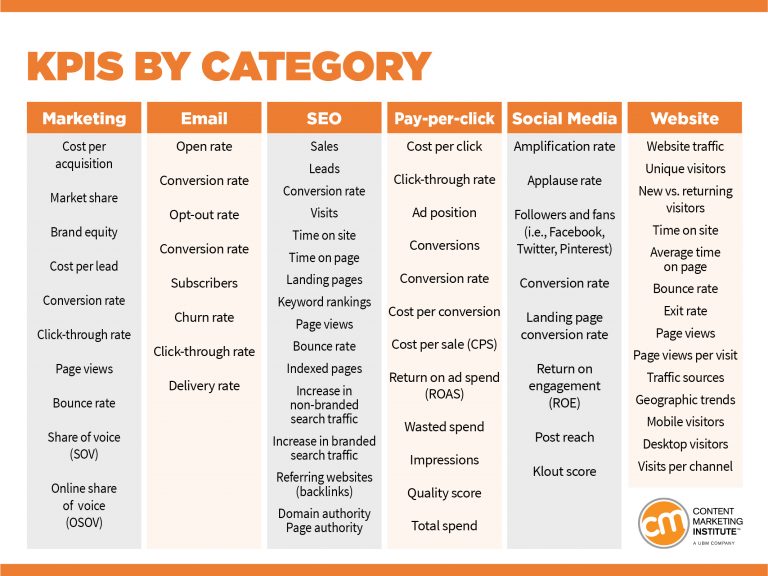
Secondly, you must look for inspiration, find the right themes and start producing the necessary content. From time to time take a better and more insightful look at your data and consumers and see how and if the content you are providing is working or not, as it might need for re-adjusting along the way.
The greatest potential for content marketing success lies in viewing content as a strategic business activity that just happens to be performed by marketers, rather than as a marketing and advertising tactic that gets applied for the express purpose of reproducing incremental wins or amplifying upper-funnel marketing results. Content marketing isn’t a replacement for other forms of marketing – it just makes those forms work better. Content marketing adds value to the business by building a critical strategic asset: a subscribed audience.- CMI
In order to reach your goals through content marketing you will need to cover five core elements: purpose and goals; audience; story; process and measurement.
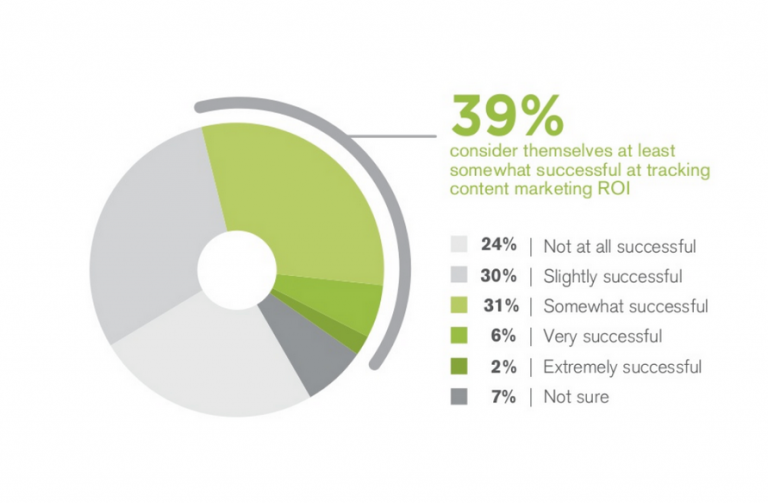
source: Marketing Insider Group
As most content marketers aren’t getting their marketing metrics right, despite all the marketing technology available today, these is your chance to stand out. Less than half of B2B marketers – about 46 percent – are satisfied that their marketing metrics are aligned with their content marketing goals. More often than not, marketers are simply not tracking the right metrics.
With a clear idea of your current content marketing goals, you’ll know which metrics matter the most right now. For example, consumption and lead metrics will take a front row seat on your analytics platforms when your primary goal is to attract new customers. You’ll still use KPIs from different categories as you’ll need to understand how effective your content is at each stage of the buyer journey, but it is the priority metrics that show you if you are reaching your main goals.
Consumption metrics have to do with the number of people consuming your content, as well as the frequency and depth of their consumption and what channels they are using to reach your content. These metrics are going to take a front row seat in your content marketing reporting if your priority goals are building brand awareness, lead generation and lead nurturing.
Sharing and engagement metrics are essential to fostering a relationship with and sense of loyalty from your audience; according to Chartbeat, “visitors who read an article for 3 minutes return twice as often as those who read for one minute”. This is the place where you will see if the audience is into your content and if they find it interesting enough to want to share it with their friends. It’s the right time also to check your brand’s likability,by asking the audience to answer some questions.
Retention marketing metrics
“As the cost of acquiring a new customer is seven times that of retaining an old one, and your current customers will spend 31 percent more on average than new ones, this is one area of content marketing analytics you don’t want to overlook. Even when you’re goal-focused on lead generation, sales or other common priorities, don’t take your eye off of your current customers or you could be losing ground where it matters most, even when you are generating a lot of interest and action from new prospects,” wrote Marketing Insider Group.
The conversion rate is the measure of whether people take the action you want them to take with your content – it could be a simple share on a social media platform or a form submission to download an ebook. It is good to keep a track of the conversion rate to know whether or not your content is converting into valuable information that you can use (email address, sales lead etc.) A good conversion rate varies depending on the industry you are in and the channels you are targeting. According to Teknicks, for inbound marketing campaigns, 1-3% is a good average.
Lead marketing metrics
According to the Content Marketing Institute, sales, lead generation and lead nurturing are among the top organisational goals for content marketers. To effectively track this metric, you need to look at the number of leads generated from form submissions, trial signups, offer opt-ins, and email subscriptions. However, to get the real business picture, you should focus on the number of qualified leads generated by a piece of content.
A CRM can easily help you track and attribute leads to your content marketing campaigns. You can also track the source of leads right from the moment the enter the sales funnel till the point they become a customer. This will help you monitor the content they consume on the way and the content that converts the most. Some popular CRMs you can use are – Hubspot, Zoho, and Capterra. – ducttapemarketing.com
These metrics look at how content impacts the bottom of your sales funnel. When your number one content marketing goal is to drive sales, these are the numbers that will be the most important.
- Total dollar amount of pipeline opportunities and the amount of revenue influenced by one or more pieces of content
- Using a first-touch attribution model, you can aggregate the total dollar amount of sales generated through a piece of content
- Revenue generated
More details about this long and complicated process you can also find here and here.
And if you like our articles,don’t be shy and comment below and share them.
The Role Accelerators Play For An Entrepreneurial Business
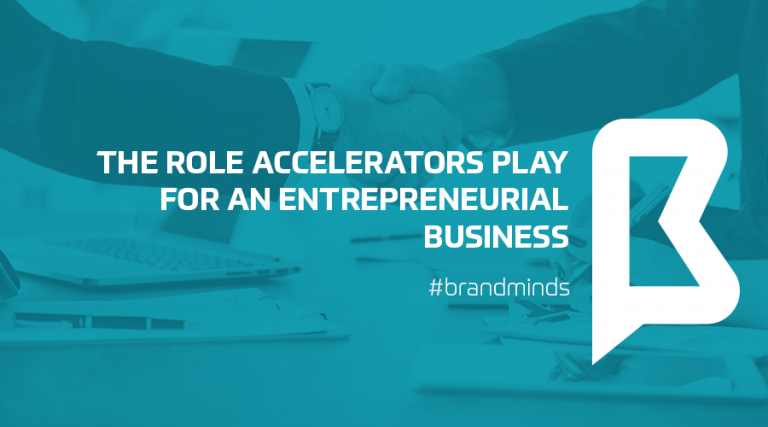
Nine out of ten startups fail. A statistic that sounds cruel and harsh, but that puts us with our feet on the ground. When one starts a business it does it with passion and hard work, investing all his/hers precious time and energy,with the hope to make it big or just simply make his /her dream come true or being on their own and share with the rest of the people a little bit of what makes them happy.
After deciding to take the leap and starting something of your own, one hardly thinks about giving up or about failure. Still, Gerard Adams from entrepreneur.com, points out that it’s almost impossible for people to create monumental success by themselves. “When we run blindly into business, thinking we can do everything on our own, without consulting with someone who’s been there before — it truly is a recipe for disaster. We’ve all been over-confident before, but the success of any empire is contingent upon the willingness to learn from the mistakes and achievements of others. It’s simply a fact that if you want to make a mark, it’s important to review the marks that have been made,” said Adams.
At this point in time mentorships, workshops and other business helpers are extremely important. An entrepreneur needs to learn from other people’s successes, but also from failures. And that, first hand, face-to-face. To be able to ask questions directly, as to the point as possible. “Startup accelerators and mentorship programs have grown in popularity as we’ve seen the huge upsurge of online entrepreneurship as well as the growth of service-based businesses and entrepreneurial ventures in general. In a 2013 survey by MicroMentor [a private business mentorship organization] mentored businesses increased their revenue by 83 percent. Those without mentorship only increased their revenue by 16 percent. This was over the course of a year,” explained further more Gerard Adams.
Accelerators are designed to prevent startups’ premature deaths. According to smallbiztrends.com, over the course of the last decade, the number of accelerators operating across the globe has skyrocketed. According to AngelList, a digital platform that helps to pair promising young startups with investors, there was only one American accelerator in operation in 2005. Today, there are 578, writes Scott Shane, professor of entrepreneurial studies at Case Western Reserve University and a regular contributor at Small Business Trends.
Accelerators are organizations that offer a range of support services and funding opportunities for startups. They tend to work by enrolling startups in months-long programs that offer mentorship, office space and supply chain resources. More importantly, business accelerator programs offer access to capital and investment in return for startup equity. “Startups essentially ‘graduate’ from their accelerator program after three or four months — which means that development projects are time-sensitive and very intensive. The primary reason accelerators have exploded in popularity is because they are designed to provide the best of both worlds for both startups as well as investors,” added smallbiztrends.com.
Susan Cohen of the University of Richmond and Yael Hochberg of Rice University highlight the four distinct factors that make accelerators unique: they are fixed-term, cohort-based, and mentorship-driven, and they culminate in a graduation or “demo day.” None of the other previously mentioned early-stage institutions — incubators, angel investors, or seed-stage venture capitalists — have these collective elements. Accelerators may share with these others the goal of cultivating early-stage startups, but it is clear that they are different, with distinctly different business models and incentive structures.
“I was able to identify 172 U.S.-based accelerators in existence during the 2005–2015 period. Collectively, they invested in more than 5,000 U.S. startups. During this period, these companies have raised a total of $19.5 billion in funding, a number that will surely increase as accelerator programs continue to turn out companies and recent graduates work their way to maturity. Accelerator graduates that went on to raise additional venture capital investment had a median valuation of $15.6 million during this period, and an average valuation of $90 million. Some very well-known companies belong to this group, including “unicorns” AirBnB, Dropbox, and Stripe, among others,” wrote Ian Hathaway for hbr.org.
What is The Happiness Equation?
We are used to talk about working hard, discipline,motivation, passion for what we do and that will make the business grow,but we hardly think and talk about what makes us happy and makes us choose a certain professional path.
The Happiness Equation is a book wrote by Neil Pasricha that may change the way you think about everything—your career, your business, your relationships, and ultimately, yourself.
The book is the result of an unrelenting search, over more than a decade, to hack human happiness. It contains the collective wisdom of hundreds of positive psychologists, dozens of Fortune 500 CEOs, and thousands of personal interviews. From Germany to Japan, from Buddha to Vonnegut, from Hitchcock to Home Alone, Neil Pasricha, the New York Times bestselling author of The Book of Awesome focused on one life-changing questions: what is the simplest formula for a happy life?
According to Melanie Ginsburg’s article on Medium.com, research suggests that only 10% of our happiness is based on life circumstances. The other 90% of our happiness is based on our genetic predisposition and the specific things we do to improve our happiness. That means you can actually train your brain to be happy. Some things that Pasricha suggests is walking three times a week, writing about positive experiences, doing acts of kindness, completely unplugging, meditating, and practicing gratitude.
How to use your past failure to push you forward in 2018
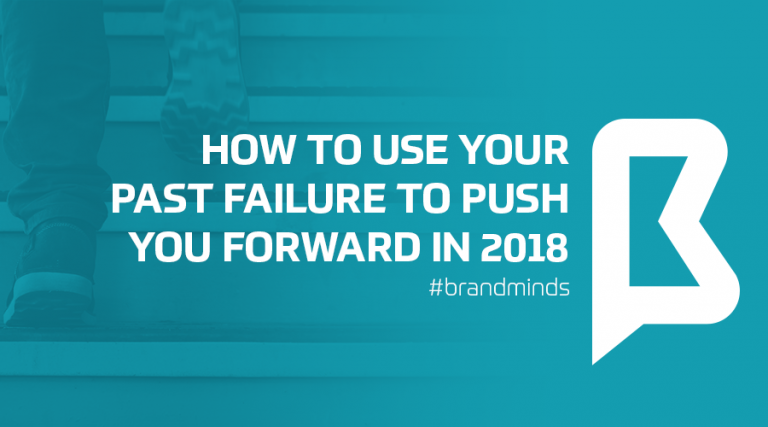
We are born afraid of failing. Always looking, checking and double checking to make sure we don’t fail. But the reality is that no matter what you do, at one time, at least,you will fail. The important thing is to know how to react when it happens, to be able to overcome the challenges and use them to our advantage.
“There’s a tremendous bias against taking risks. Everyone is trying to optimize their ass-covering,” said Elon Musk. And he is right, isn’t he? So get up, dust off and start thinking pro-actively. Each time you fall it’s time to get up and try again.
According to Grant Cardone for cnbc.com, the problem is that most people don’t know what to do when they fail. “The truly successful rely on their ability to act, despite facing obstacles and difficulties. When things aren’t going well, it’s easy to “take it easy” and to not be “hard on yourself,” like conventional wisdom tells you to do. To recover from failure, you have to act now and then keep going with the knowledge that enough actions taken will turn into the future you want,” wrote Cardone.
Here are some ideas of how you can cope with failure and move past it:
Understand that failure is just part of the process, accept it and process it
Like everything that happens, both at a personal and professional level, one must understand what happened, accept the situation, process it and then move on. Putting down the failure in writing is a good start, as well as steps you could have taken differently, positive things you learned from it, and what you’ll do if faced with it again. “Ask yourself what you have to do to become the name people think of for your area of expertise. This exercise will help you create the list of targets that will make your stretch goals a reality. Just because something didn’t work in the past doesn’t mean you should minimize your goals. It means that your actions were either wrong or not at massive, 10X levels,” added Grant Cardone.
Talk with somebody and let the frustration fly
Being to involved in the process and therefore too emotional about it can make you not see the details and the big picture. An expert eye as well as a couple of friends that work in different fields than you can help you get a different, fresh and good perspective on things. They might point out to you some aspects that, all of a sudden, seem very obvious and “in your face”.
Moreover, “once you have have taken some time to walk it off and clear your head, you can then begin accepting what happened. The initial emotional rush will eventually dissipate and you can then slowly return your focus back to the issue at hand,” pointed out Graham Young for fastcompany.com.
Innovate
“Working in business development, I am only as good as my latest plan to make money. Not every plan worked. This forced me to come up with more ideas at a faster pace. If one idea didn’t work, I was on to the next one. I had to shelve many ideas that I loved, but learning to “kill my darlings” only allowed me to birth new plans in a less precious way. Often, using what we’d learned from one thing failing makes the next iteration better and more successful,” wrote Victoria Cairl for entrepreneur.com.
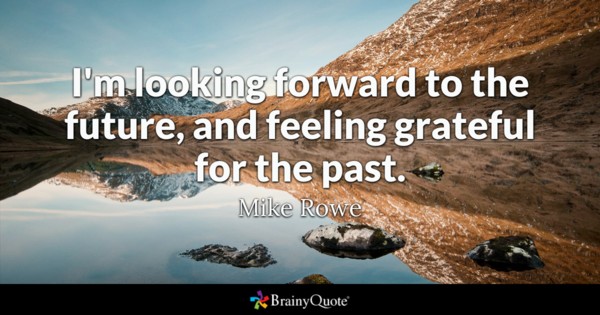
An honest feedback and perspective are the best
You shouldn’t be afraid of receiving the feedback you don’t want. Brutal honesty from your friends and experts, but also your own clear view, will go a long way. Don’t try and fix something that is unfixable or is not producing the right results. Letting it go and focusing on another idea or project, might just be the key. It would be much better for you to spend your time and dedication to an idea that shows real perspective and you know it can go further, rather than wasting energy on something that has no real value.
Don’t give up and be positive
Focusing on the negative will get you nowhere, while a positive thinking might do the trick. Moreover, don’t take a failure as a final try to your own business endeavor. Many of the successful people today have tries several businesses and ideas before hitting it big. “Generally, the more positive your attitude and outlook, the more that will permeate the rest of your actions and thoughts, creating a better experience going forward,” concluded inc.com.
The Power of Habit in Business
In The Power of Habit, award-winning New York Times business reporter Charles Duhigg takes us to the thrilling edge of scientific discoveries that explain why habits exist and how they can be changed. With penetrating intelligence and an ability to distill vast amounts of information into engrossing narratives, Duhigg brings to life a whole new understanding of human nature and its potential for transformation.
Along the way we learn why some people and companies struggle to change, despite years of trying, while others seem to remake themselves overnight. We visit laboratories where neuroscientists explore how habits work and where, exactly, they reside in our brains. We discover how the right habits were crucial to the success of Olympic swimmer Michael Phelps, Starbucks CEO Howard Schultz, and civil-rights hero Martin Luther King, Jr. We go inside Procter & Gamble, Target superstores, Rick Warren’s Saddleback Church, NFL locker rooms, and the nation’s largest hospitals and see how implementing so-called keystone habits can earn billions and mean the difference between failure and success, life and death.
At its core, The Power of Habit contains an exhilarating argument: The key to exercising regularly, losing weight, raising exceptional children, becoming more productive, building revolutionary companies and social movements, and achieving success is understanding how habits work.
Habits aren’t destiny. As Charles Duhigg shows, by harnessing this new science, we can transform our businesses, our communities, and our lives.
More on the book and the ideas presented you can also read on this New York Times’ inspirational article.



